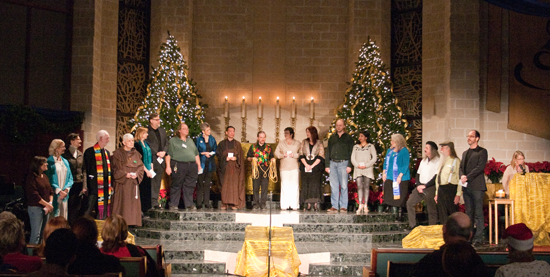Amy at Texas Faith: In love and marriage, do different faiths really matter in America?
Texas Faith: In love and marriage, do different faiths really matter in America?
Question by Rudolph Bush
Recently, I attended the beautiful wedding of two friends, one from a Jewish family and one from a Christian family. The ceremony largely followed the Jewish tradition with occasional mention of the bride’s Christian upbringing.
I began to wonder, witnessing this blending of two people into one couple bound under God, what place separate faiths really serve in our society. If we are honest, there is no justifying the fundamental difference in belief between Christians and Jews or the other major faiths. But in cases like these, it is our cultural homogeneity that is more important than the tenets of our faith.
Given that, what does faith really mean in circumstances like these? Is faith or religion simply ceremonial? Or are we overcoming divisions in the name of something greater – that is – love?
AMY MARTIN, director emeritus, Earth Rhythms; writer, Moonlady Media
Show me 150 Christians and I’ll show you 150 ways to understand God. Even in those of denominations that follow unyielding dogmas, what happens between a person and God in the deep of the night is the ultimate in personal. So interfaith marriage is not such a great leap.
That uniqueness is not surprising since each of us is wired differently—our brains and nervous systems, the way biochemicals like adrenaline and dopamine affect our bodies, how we perceive time and processes memory. All this shapes the way we think and religion is part of thought.
Aided by healthy boundaries and priorities, interfaith marriage can not only flourish, but be the bedrock of a change for peace. Besides, there are other issues more vital in marriage, such as leaving the toilet seat up or down, the toilet paper draped in or out, and, more seriously, sex, children, and money. Religion is down the line.
